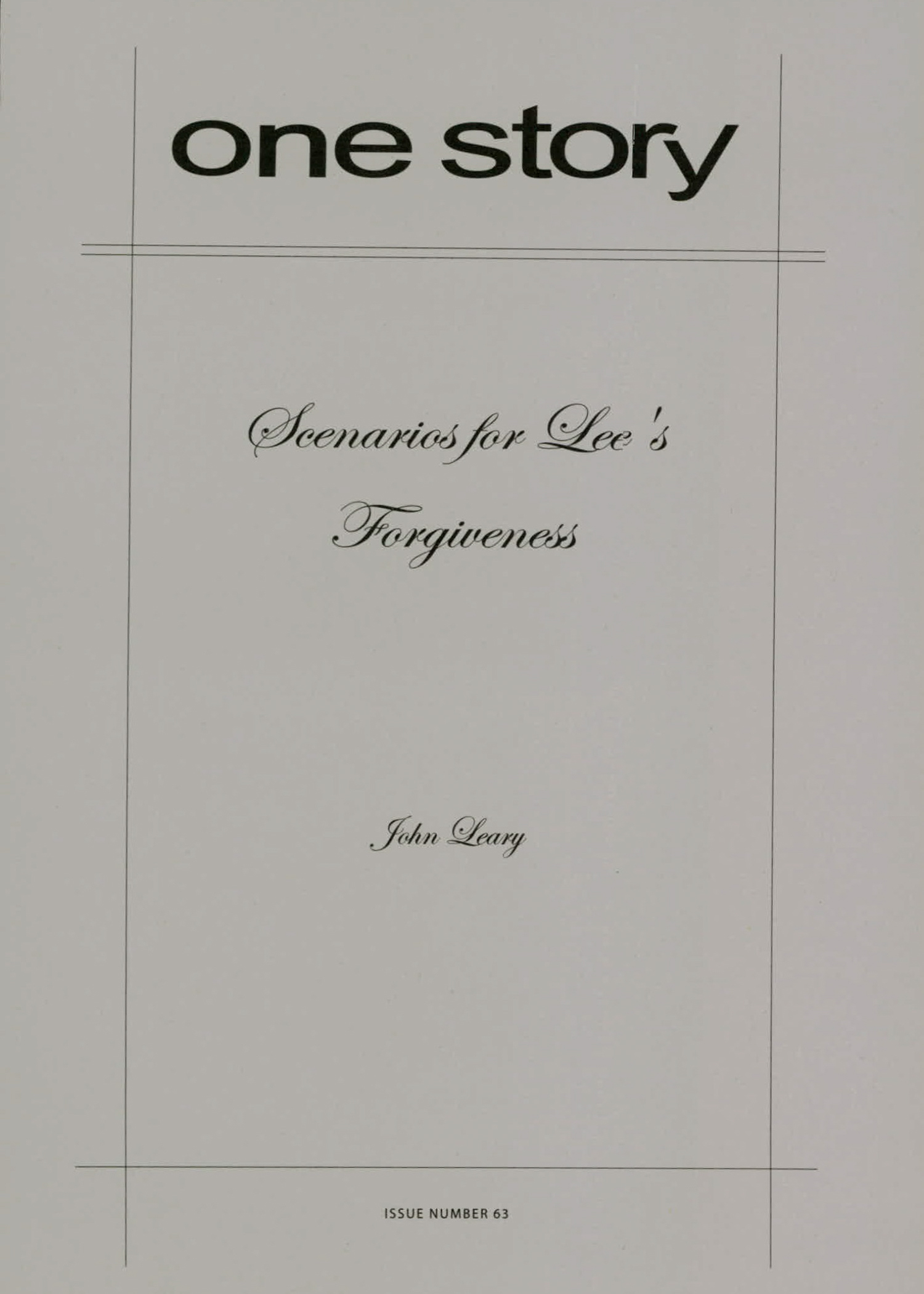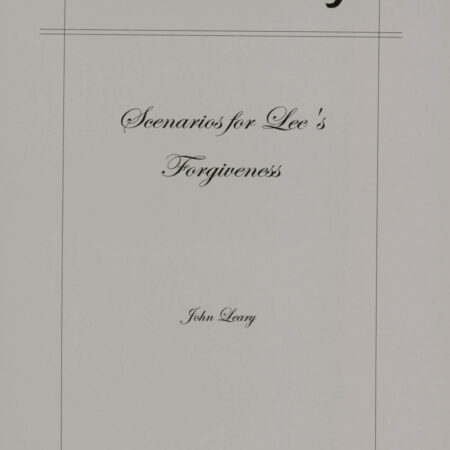
Scenarios for Lee’s Forgiveness
$2.50
44 in stock
Excerpt
We expect, we hope, that Lee will forgive Audrey at Camilla’s sixth birthday party. Little girls’ birthday parties, if done correctly, are places renowned for softening men, for melting their hearts like a mint in a mouth.
An armada of workers has hung pink crinoline bunting, mowers and gleaners have polished the grass, and party gaffers have strung fairy lights along the length of the lawn that rolls and tumbles from the main house to the lake. Camilla’s parents have assembled four champion pastry chefs, two chocolatiers, a children’s dim sum kitchen, and a young celebrity chef whose only job will be sectioning and arranging imported fruit. The food preparers will rarely be seen; the roving performers will be the sequined gloves of the celebration.
At the beginning of the party, as the children gather near the gazebo to receive their instructions, the first wave of performers springs like summer moths from the grass—nine harlequin dwarves, four friendly Papuan cannibals, three mace swallowers, two blind mimes, a man in a lion suit and an assortment of faux-savage clowns.
Then the “Pop!” of a champagne cork signals the party has truly begun—children chase and laugh, adults mill and smile, while offshore the calliope-boat S.S. Leticia plays birthday party tunes.
John Leary
Fiction by John Leary has appeared in numerous online and offline magazines, including the premiere issue of Opium.print. This fall, Monkeybicycle 4 will feature a collection of stories he edited by 20 different writers about a baseball game between humans and robots. He has “recently” “finished” a “novel.”
Q&A by Hannah Tinti
- HT: Where did the idea for this story come from?
- JL: A lot of the ideas in the story came from actual experiences having birthday parties for six year old girls. It’s not exactly a hobby, but it’s something I’ve done. I made up some of the things in the story, but some of the elements are things that my daughters have always wanted. Like an ungulate juggler. Every year they ask for an ungulate juggler and every year I tell them our insurance won’t cover it. That’s not really true—I’m told an ungulate rider is freely available on the London insurance market—but it’s fun to see what you can get them to believe. The original idea for the story came from a time when I was eating a lot of burritos. And Lee, the title character, has a time where he was eating a lot of burritos. The story practically wrote itself from there. Except for the idea for the bee piñata—that wasn’t my idea, I got it from a friend of mine. I think that’s another thing that happened—I heard about the bee piñata and really wanted to write a story that had a piñata full of bees, and so that was another driving force. A third element was that I had a friend who has alopecia, the disease that causes you to lose all your hair, so he was getting terrible sinus infections, so he had artificial nose hairs implanted. That was a guiding element of the story too, though it didn’t make it into the final draft.
- HT: What was the most challenging aspect of writing this story?
- JL: I always have a lot of trouble typing. I like to eat when I write, and if my hands are sticky things get gummed in the keyboard. For a long time I had a raisin jammed under my “W” key, so couldn’t write any stories with Ws, or else I would have to find another letter to stand in.
- HT: Why did you choose to tell “Scenario’s for Lee’s Forgiveness” from the point of view of a group, rather than an individual?
- JL: It’s scary, the first person. Comfort comes from numbers. And everyone always thinks an “I” is me. No one has every accused me of being a “we.” (I get called “you” a lot).
- HT: The writing style of this piece is very distinctive, from the use of obscure words (ungulate, ziggurat) and made-up foods (imrild, the Danish mosquito-repellent cheese) to lavish descriptions of Zulu waitresses, Papuan cannibals, and chocolate rocketeers. Was all of this to achieve a certain effect? And how does it relate to the theme of the story?
- JL: Roald Dahl I think once said that you should always have just one really hard word in a story. And I couldn’t decide on which one to use, so I threw in too many. It seems pretentious, so then I thought the rest of the story had to have some sort of false pretension (both the French and the Germans have a word for this, the false pretension, but the Americans and the Italians and the Chinese, do not, to my knowledge) so it built from there. And I have had imrild, once, but it wasn’t called imrild. It wasn’t tasty. I couldn’t remember the name, so I asked a Danish friend what he would call mosquito-repellent cheese in his country, and he said, “Imrild.”.
- HT: What is the purpose of the scenarios? And why did you structure the story around scenarios, rather than telling a straight narrative?
- JL: I think the primary purpose of the scenarios was to give me the chance to use the bee piñata. And the burning bear. Those things were the driving forces behind the scenarios, and really kept me interested, primarily because video games are not yet complex enough to let you create your own bee piñata. But by themselves, they were just sort of sad-looking, so I needed a story to put around them. Luckily, at that time I was eating a lot of burritos.
- HT: How did you come up with the character of Colby, the paunchy bachelor who argues with the “we” of the group? And why is he the only person who backs Lee’s point of view of things?
- JL: Colby and I used to run a dry goods clearinghouse in Macau. I’m pretty sure he won’t read this story, as he’s long since gone blind. Do you have a Braille edition? Colby is also the character that backs Lee’s point of view because I once had two dates with a woman with a cat named Colby. It was the most sympathetic cat I’ve ever met, and could sit down and eat an entire bean and cheese burrito in a single sitting. But the woman didn’t have the cat do this trick too often, because it would smell really bad for a week afterward.
- HT: Is this story truly about forgiveness? Or is it something else entirely?
- JL: That’s a good question. I don’t know what it’s about. What you take away from a story seems pretty subjective, and a writer can only slap a reader around so much before the reader says something like “That story was about some dumbass stupidhead. It sucked.” I think of it as “the bee story.”
- HT: What is the best bit of advice about writing you have ever received?
- JL: “Use more bees.” I got that from a guy who’s a really great writer and a stupendous gardener. He claims to be responsible for the idea of the sinus garden, as he says he built one in a villa outside of Krc in the late 80s. But he’s lying. I gave him the idea for the sinus garden one night when we were playing Sacramento (it’s like quoits, but with mitts) and the next weekend I heard him bragging to some Air Afrique flight attendants about how he’d designed a sinus garden and a pituitary garden. The second best bit of advice about writing I ever received was from a teacher I had in college. He said, “You should just quit now and do something productive.”
- HT: What are you working on now?
- JL: I’m revising a novel. To me, writing a novel is like folding a mile-long sheet. While being stung by bees. So if that’s your thing, novel writing can be really rewarding. I’m thinking instead I might work on a handbook or a pamphlet for a while. I have some ideas.
